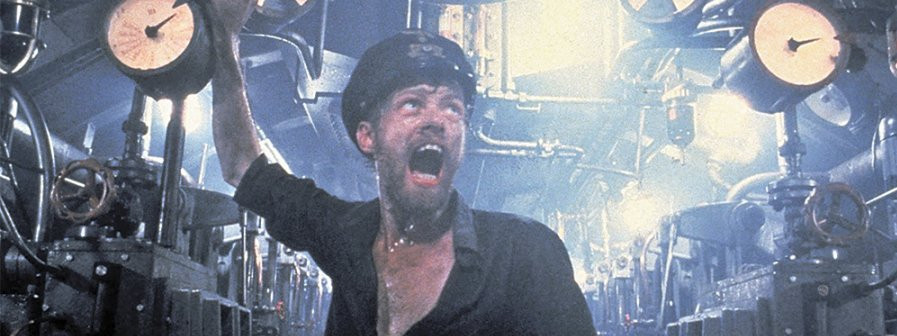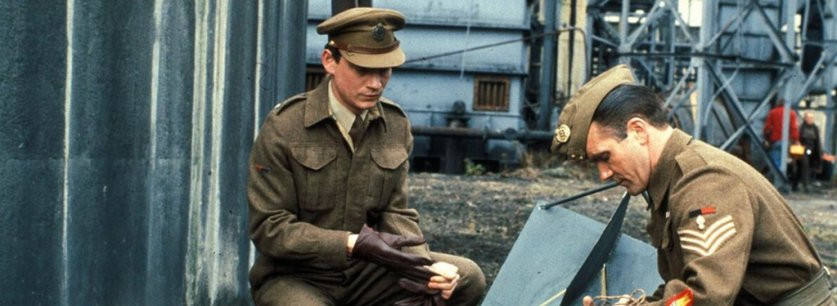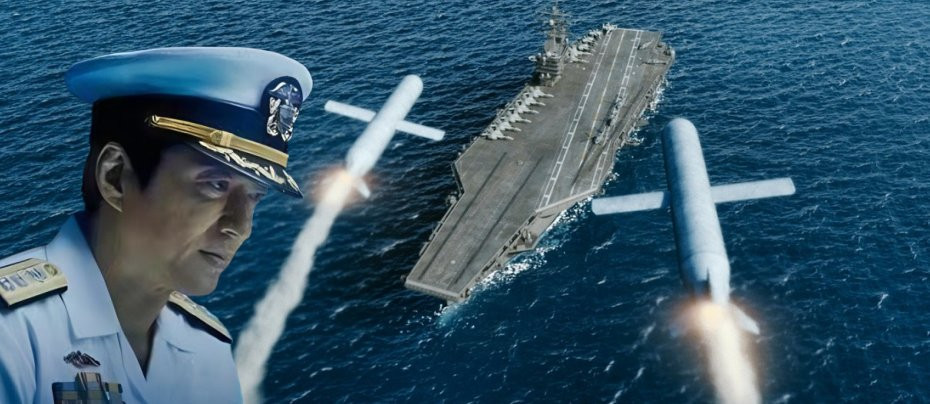
Das Boot
1985 - GermanyThe year is 1941 and it's the height of World War II. In German-occupied France, a youthful submarine crew gathers for one last night of drunken revelry before they take to the high seas. They eat, drink and make merry like there's no tomorrow, and for many, there won't be. Of the 40,000 Germans who served aboard U-boats, only 10,000 survived.
Das Boot is the story of the crew of U-96, one of the submarines in the infamous 'wolf packs' that attacked convoys in the Atlantic. It is told as seen through the eyes of Lt. Werner (Herbert Gronemeyer), a war reporter whose assignment is to report on life with a U-boat crew. One of his first experiences is in a seedy beer hall, where the crews of all the U-boats have gathered to have one last night of pleasure on the eve of another mission. The latest hero, a captain of one of the other U-boats, is paraded by Nazi Party Workers. So drunk he can barely stand, he delivers a speech liberally littered with a tirade of abuse against the Nazi hierarchy, much to the amusement of the submariners, and the obvious disapproval of the Party Members. This firmly establishes the 'them and us' attitude of the U-boat crews to the Nazis.
When U-96 puts to sea, the claustrophobic life on board is brilliantly portrayed, as are the long days of boredom while the Captain awaits orders. The war-weary, cynical Captain is played by the exceptional Jurgen Prochnow, a perfect choice for the part. The story really comes into its own when the U-boat is attacked with depth-charges: first with the crew racing to 'battle stations', tracked through the narrow corridors and bulkheads by a hand-held camera; then, the desperate struggle to maintain silence with popping rivets and bursting seals all around them. The strain is too much for Johann (Erwin Leder), who, suffering from shell-shock, emerges from the engine room and staggers to the bridge. He is eventually forced back to his post at gunpoint.
The grim reality of war is further depicted when, having sunk an allied cargo ship, they are unable to pick up survivors, and are forced to leave them to drown. It is plain to see that the crew are deeply affected by this. U-96 is eventually ordered to the Mediterranean, a mission which Captain and crew regard as suicide, as they have to negotiate the heavily guarded Straits of Gibraltar. The submarine is badly damaged in the attempt, and is left on the sea bed, with only emergency power, and oxygen running out. There follows a desperate and eventually successful race to effect emergency repairs, and the U-boat eventually limps back to base.
This was probably the first time that many people saw WW2 from a German perspective. This masterpiece by director Wolfgang Petersen, based on the novel of the same name by Lothar-Guenther Buchhelm, started life as a movie. The 'director's cut' of this movie was eventually converted to a six-episode TV serial. Two television versions were actually produced: one in the original German, with English subtitles, the other dubbed into English. The version in the original German is by far the more effective. All the incidents portrayed in Das Boot are said to have happened. It is a tribute to the director that, even though this story is about what we regard as 'the enemy', we end up willing them to survive. Therefore, the bitter irony of the ending was not lost on us, and I, for one was left feeling sorry for them.
The story is perfectly paced, so that the viewer's interest is sustained throughout. The parts are well cast, and the realism factor is very high. The production is further enhanced by Klaus Doldinger's driving electronic music (reminiscent of Kraftwerk's 'Autobahn') running throughout.
Seen this show? How do you rate it?
Seen this show? How do you rate it?
Published on December 7th, 2018. Review: Tom Plumpton.










